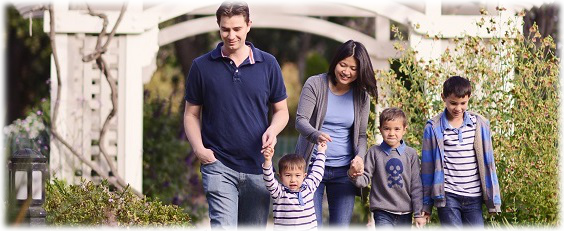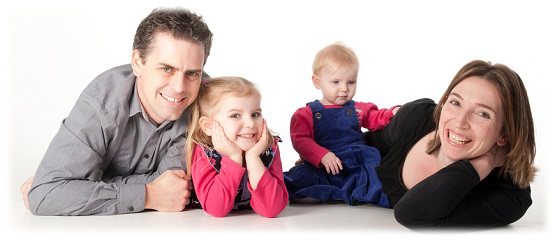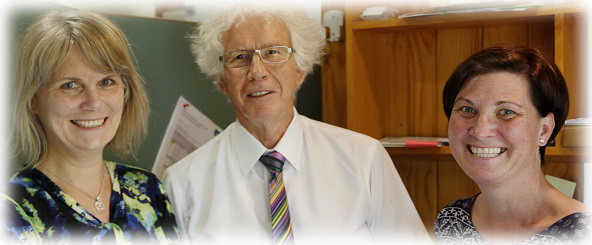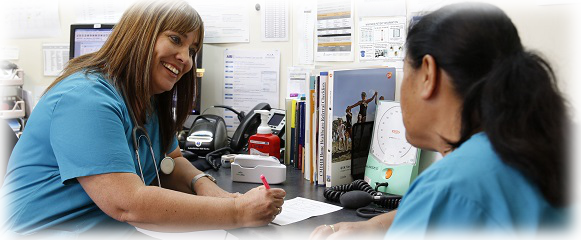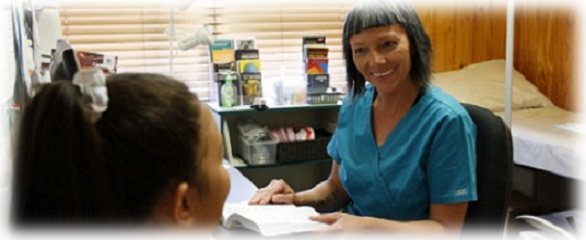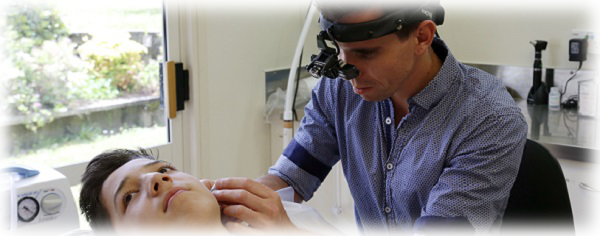October Newsletter
2013
Welcome again to the Millhouse Community and other readers, This newsletter highlights current events at the Millhouse Integrative Medical Centre and continues a discussion on supportive nutritional and lifestyle changes for the prevention and treatment of cancer.
Millhouse News
Congratulations to Dr Stephanie and her husband on the birth of their baby girl. While Dr Stephanie is on maternity leave Dr Lily Liu is covering her practice. Dr Lily is fluent in Mandarin and Cantonese and has an interest in women's health and care of the elderly.
>>>Learn more about this...
In this issue...
Walk-Ins and Triage
Medical Emergencies
Trouble-Shooting the Online Appointment System
Doctors Away
This month Dr Ric writes about
Lifestyle Aspects of
Facing Up to Cancer
Hepatitis B
Testing for this condition has been added to blood screening with cholesterol and diabetes. Hep B is a viral liver disease, more prevalent in Polynesian and Asian communities and those exposed to blood contact. Hep B is treatable disease and prevented by vaccination, which we routinely give in infancy.
>>>Learn more about this...
Remember E-appointments
This is an easy and convenient way to book an appointment on line at www.millhousemedical.co.nz. The ConnectMed host site allows you to select your doctor and an appointment time but you will need to register and select a password before proceeding.
Use your first true name (not a shortened name, middle name or an English name used instead of your Asian name, use the name given to reception when you registered), your own e-mail address and mobile phone number which must be different from other family members; this has been the biggest reason for e-appointment failure.
You can book for a family member on line using your password but it will be in your name so leave a message on the appointment screen saying who it is for and inform reception on arrival. Don't hesitate to contact us if you are having problems with e-appointments and we will investigate promptly.
>>>Learn more about this...
Dr Ric writes:
Cancer (Part Two)
For Part One see the September Newsletter
In the September 2013 newsletter I mentioned that cancer affects one in three people during their lifetime and is the non-specific name given to the many diseases of uncontrolled cell growth that can affect any part of the body. I suggested that cancer's uninhibited growth was an abnormal healing response of cells trying to survive in a toxic environment due to adverse influences created by viruses, bacteria, radiation, or chemicals and accelerated by such things as poor diet, nutritional deficiencies, stress and lack of exercise.
Since the 1950's billions of dollars have been spent on the 'War against Cancer' and through trial and tragedy we now know that early detection and treatment is best (particularly for breast, prostate, melanoma and colon cancer) and that in advanced cancer using multi-drug chemotherapy brings the greatest chance of any success (particularly in leukaemia, lymphoma, testicular and ovarian cancer).
A summary table was included that outlined effective lifestyle strategies to prevent and detect cancer and is the reason we continually encourage smokers to quit as well as sending regular reminders for mammogram and smear examinations. These simple actions are the most effective way to prevent lung (smoking also hastens the onset of many cancers, heart and other vascular diseases so stopping prevents these too) breast and cervical cancer.
In this newsletter I discuss nutritional influences in cancer, aspects of cancer growth and how a cocktail of natural therapies with lifestyle changes used with conventional treatment, may bring added success.
Studies and Stories
Observational population studies over recent decades demonstrate that adopting a healthy diet (eating whole unprocessed foods, especially dark coloured vegetables & fruits and spices) and having a high vitamin D level (sunlight) greatly lessen the risk of cancer. However, you should not presume that taking a single supplement or a few nutrients will be helpful in treating cancer as limited trials so far have shown no benefit (beta-carotene given in lung cancer hastened its onset and selenium with vitamin E in prostate cancer showed no advantage. Vitamin D may be beneficial but we await more studies to confirm this.)
Few studies have been done using nutritional and lifestyle programmes in cancer treatment. In 1999 Dr Alexander Sun and his colleagues reported on a pilot trial (1) in advanced 'non-small cell' lung cancer patients who were receiving conventional therapy, where half were given an additional select-vegetable-mix (SVM is a soup mix made from dried soybeans, mushrooms, mung beans, red dates, scallion, garlic, lentils, leek, hawthorn fruit, onion, ginsengs, angelica root, licorice, dandelion root, senegal root, ginger, olive, sesame seeds, and parsley). The eleven patients taking the vegetable mix lived on average another 15.5 months compared to only 4 months for the thirteen patients in the control group. In 2001 (2) he reported on a further 14 patients with advanced 'non-small cell' lung cancer who were also given the select-vegetable-mix with conventional treatment. Amazingly in this group one person was alive more than 133 months later and another with brain secondary spread, who also had radiotherapy, was in remission. The mean survival time for the other twelve patients was 33.5 months. There was no evidence of toxic reactions to the SMV.
In the December 2009 newsletter I reported on Dr Dean Ornish's 2004 study that showed in the early stage of prostate cancer patients adopting intensive lifestyle changes, (vegetarian diet, aerobic exercise, stress management training, no smoking and group psychosocial support) with active surveillance, could avoid or delay conventional treatment.
AGED STANDARDISED RATES
FOR BREAST CANCER
China* - Rural Qidong County
11.2
- Urban Shanghai 26.5
Japan* - Hiroshima 33.4
England & Wales* 68.8
Scotland* (*1997 figures)
72.5
USA (2002-2006)White
123
Black
113
Asian
81.6
NZ (MOH figures)
1956
59
1996
117
2009
99
2009 NZ Maori only 125
Jane Plant, cancer survivor
We can also learn from the experience of those with cancer. Professor Jane Plant, a geochemist, in 2000 published her autobiography 'Your Life is in your Hands' (Virgin Publishing 2000) on her journey with cancer. In 1993 she was diagnosed with breast cancer and despite several operations, 35 radiotherapy treatments, irradiation to induce the menopause and chemotherapy her tumour returned for the fifth time and she was told she only had months to live.
Her husband a professor of geology reminded her of the very low incidence of breast cancer in rural China (see table). Jane who had already adopted a vegan diet and other lifestyle changes then removed milk products completely and within six weeks her cancer was in a remission which lasted for another eleven years. In 2011 the cancer returned when a lump appeared below her collar bone and later she experienced acute shortness of breath from the accumulation of chest cavity fluid. On reflection Jane was aware that over time she had become less vigilant with her diet, which she now resumed and also commenced Letrozole a drug that blocks oestrogen formation. Within months the lung fluid resolved and the lump was barely palpable. In 2012 specialist's declared her cancer was again in remission.
Her books outline the 'Plant Programme', a prescription of diet and lifestyle interventions that can be used with breast and prostate cancer therapy. Jane Plant continues to educate the public and medical profession about breast cancer natural therapies and for her services to women's health, she was made a Life Member of the Royal Society of Medicine (UK). (The table shows the lower rate of breast cancer in rural China and a tenfold increase in western countries. The lower NZ 2009 figure reflects the effect of the increasing migrant Asian population who have a lower cancer incidence. Milk protein has a strong association with breast and prostate cancer and should be removed from the diet.)
Characteristics of Cancer
I believe (3) cancer is a metabolic illness, not a genetic disease, that develops when the microenvironment of the cell becomes toxic causing the healthy oxygen rich energy system to regress to a primitive low-oxygen fermentation mode of working. The inefficient fermentation production is like a fire lacking air (oxygen) which struggles to burn, smoulders, producing little heat, much smoke and soot compared to a flame fanned with air (oxygen rich energy production) which burns bright, with intense heat, little smoke and residual ash. The cancer cell, like the fire with less air, produces increasing toxic acid residue which poisons itself and adjacent healthy cells, and coagulates proteins (like vinegar does with egg white) which cocoon the cancer preventing the search and destroy mission of the immune system from removing the abnormal tumour growth. Acid residues also thicken the blood, increase microvasculature clotting and the potential for deep vein thrombosis. The uncontrolled growth, stimulated by tumour growth factors, inflammation, excessive insulin (and insulin growth factors fed by a refined carb diet), hormones (and their metabolites), disrupts the tissue architecture spreading locally and through the blood stream to produce more destructive colonies of cancer cells.
Cocktail Therapy
Traditional Chinese Medicine has always advocated the use of multiple herbal therapies to treat illness. The successful treatments of tuberculosis, HIV-AIDs, leukaemia and lymphoma have only been achieved using multi-drug therapy attacking different aspects of growth.
The 'principles of cancer treatment' in the table outline the multiple areas where cancer growth can be confronted using nutritional therapies, lifestyle change and conventional treatment.
Cancer is a complex disease that requires a complex response.
Next month I will focus on specific herbal and nutritional interventions in cancer treatment.
Yours in good health
Dr Richard J Coleman
(1) Nutr Cancer. 1999; 34(1):62-9.
(2)Nutr & Cancer 2001; 39(1):85-89
93) For interested readers I suggest 'Cancer as a Metabolic Disease'
by Thomas Seyfried (2012) and the many publications of Majid Ali.
PRINCIPLES OF CANCER TREATMENT
Remove toxic waste
• All carcinogens (see September newsletter)
• Remove/debulk tumour (surgery, radiation, chemotherapy – RISK - the treatment may increase toxicity & cancer spread)
• GUT ecosystem (stop refined sugar/carb/ high fat/processed food, remove bad bugs, replenish good bacteria)
• LIVER ecosystem (eliminate toxic chemicals, alcohol, improve detoxification – diet, herbs, spices, nutrients)
• Mind (less stress, resolve depression & anxiety improve sleep, meditate, relax)
Encourage oxygen rich energy production/reduce fermentation
• Remove refined processed sugar/carb/high fat food
• Phytochemical rich diet, herbs & spices
• Ketogenic diet may be helpful
• Vigorous exercise, abdominal breathing, oxygen
• Meditation, relaxation Neutralise toxic acid waste
• Alkaline vegetable juices daily
• Potassium & magnesium citrate
Reduce tumour growth factors
• Less insulin & stress hormones, normalise sex hormones -avoid sugar/carb foods, improve diabetes & obesity
• Herbs & spices
• Chemo/hormone drugs may be useful
Reduce inflammation
• Careful surgery, limited effective radiotherapy, minimal effective chemotherapy
• Avoid trans-fats, omega-6 fats/oils, refined processed foods
• Phytochemical rich diet, omega-3 oils, herbs, spices & nutrients
• Cox2 inhibiting anti-inflammatory drugs Encourage an effective immune system
• Phytochemical diet, herbs, spices & nutrients
• Vitamin D
Reduce cancer spread
• Phytochemical rich diet, herbs & spices
• Vitamin D & Drugs

